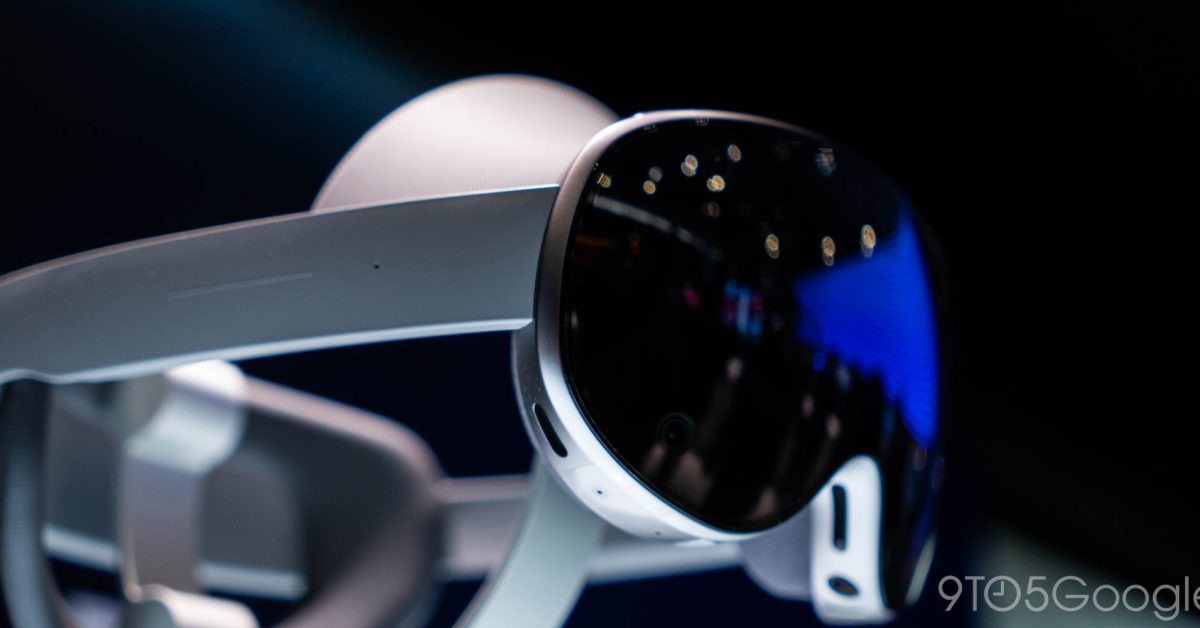Exposed: Hidden Privacy Risks Lurking in Your Ray-Ban Meta Smart Glasses
Technology
2025-04-30 18:29:12Content

Meta has significantly expanded its data collection capabilities for the Ray-Ban Meta smart glasses, introducing a controversial update to its privacy policy that grants the company broader rights to leverage user-captured content for artificial intelligence training and development.
The revised policy allows Meta to potentially use images, videos, and audio recordings captured through the smart glasses to enhance its AI models, raising important questions about user privacy and consent. This move represents a strategic expansion of Meta's technological capabilities, enabling the company to gather unprecedented insights from real-world visual and audio data.
Users of the Ray-Ban Meta smart glasses should carefully review the updated privacy terms, as the new policy provides Meta with more extensive permissions to analyze and utilize personal content captured through the device. The update underscores the ongoing tension between technological innovation and individual privacy in the rapidly evolving landscape of wearable technology.
Privacy Paradigm Shift: Meta's Ray-Ban Glasses Redefine Digital Surveillance
In an era where technology increasingly blurs the lines between personal privacy and corporate data collection, Meta's latest update to its Ray-Ban smart glasses privacy policy represents a watershed moment in wearable technology's ongoing ethical debate. The implications of this policy revision extend far beyond a simple terms of service modification, potentially reshaping how consumers understand digital privacy in an age of ubiquitous artificial intelligence.Unveiling the Digital Frontier: Where Personal Data Meets Corporate Innovation
The Technological Landscape of Wearable Privacy
Meta's strategic maneuver with the Ray-Ban Meta smart glasses illuminates a complex technological ecosystem where personal privacy becomes an increasingly negotiable commodity. The updated privacy policy represents more than a legal document; it's a calculated expansion of data collection capabilities that fundamentally transforms how wearable technology interfaces with user information. The sophisticated neural networks powering these smart glasses now possess unprecedented capacity to capture, analyze, and potentially leverage user-generated data. By broadening the scope of permissible data storage and AI training methodologies, Meta has effectively created a new paradigm of digital surveillance that challenges traditional notions of personal boundaries.Algorithmic Consent and User Empowerment
Beneath the surface of this policy update lies a profound philosophical question about technological consent. Users of the Ray-Ban Meta glasses are now implicitly agreeing to contribute their real-world experiences to an expansive machine learning infrastructure. This tacit agreement transforms everyday interactions into potential training data for increasingly sophisticated artificial intelligence systems. The glasses' advanced optical and audio capture technologies enable unprecedented levels of environmental data collection. Each frame captured, each conversation recorded, becomes a potential building block for Meta's evolving AI models. This represents a quantum leap in how personal experiences are transformed into algorithmic insights.Ethical Implications of Ambient Data Collection
The technological capabilities embedded within these smart glasses transcend traditional privacy frameworks. By integrating high-resolution cameras, advanced microphones, and machine learning algorithms, Meta has created a device that doesn't merely record experiences but actively interprets and contextualizes them. Privacy experts argue that this update represents a significant erosion of individual digital autonomy. The ability to capture, store, and analyze real-time environmental data without explicit moment-by-moment consent raises critical questions about the boundaries between personal experience and corporate data assets.Technological Architecture and Data Governance
Meta's infrastructure for managing these expansive data collection capabilities is remarkably sophisticated. The company has developed robust machine learning protocols that can efficiently process, categorize, and utilize the vast streams of information generated by Ray-Ban Meta glasses. The technical architecture supporting this system involves complex neural networks capable of real-time pattern recognition, semantic analysis, and contextual understanding. This isn't merely data collection; it's a dynamic, intelligent system that continuously refines its understanding of human behavior and environmental interactions.Consumer Perspectives and Market Dynamics
Consumer response to this privacy policy update remains nuanced and multifaceted. While some users appreciate the technological innovation, others express significant reservations about the potential for invasive data collection. The market for wearable technology stands at a critical inflection point, where convenience increasingly competes with privacy concerns. The Ray-Ban Meta glasses symbolize a broader technological trend: the gradual normalization of ambient, continuous data collection as a standard feature of modern digital experiences. As these devices become more sophisticated and integrated into daily life, the very concept of personal privacy continues to evolve.RELATED NEWS
Technology

Breaking Boundaries: How the Nintendo Switch Revolutionized Gaming Forever
2025-05-05 19:20:49
Technology

Beyond Reality: Samsung's Groundbreaking XR Headset and the Galaxy S25 Edge Unveiled
2025-03-03 14:15:00
Technology

Next-Gen Gaming Revolution: Nintendo's Switch Successor Poised to Redefine Console Landscape
2025-04-02 06:31:48





